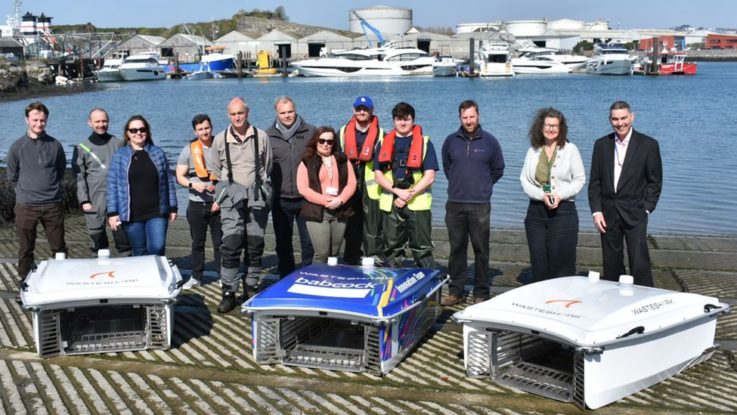
The City Council of Plymouth in southwest England is using robotic vehicles – called Waste Sharks – to collect plastic litter in the sea. The Waste Sharks are part of the council’s Preventing Plastic Pollution initiative.
The Waste Sharks are remotely operated vehicles (ROVs) that survey the surface of the seas before collecting the garbage. These aquadrones are electrically propelled, produce zero carbon emissions, produce no noise or light pollution, and pose no threat to wildlife. They were developed by RanMarine Technology which specializes in the development of industrial autonomous vessels for cleaning water. WasteShark is capable of removing up to 500 kilograms of plastics, microplastics, oils, and other pollutants per day from all types of waterways, in a single outing lasting up to six hours and covering over 5km. They are also able to reach areas that other vessels and trash reclamation units cannot.
The project is working with Plymouth-based robotics and artificial intelligence (AI) experts MSUBS and Marine AI to enhance the Waste Sharks’ ability to work autonomously. The University of Plymouth’s International Marine Litter Research Unit will help to collect and analyze the waste consumed by the Waste Sharks. The Cattewater Harbor Commissioners are trialing the project and plan to work on an education and awareness program involving local schools and communities. Babcock International – an aerospace, defense, and security company which is a member of the Britain’s Ocean City: Plastic Task Force – has also purchased a Waste Shark to help collect plastic waste from waters around the dockyard in the city.